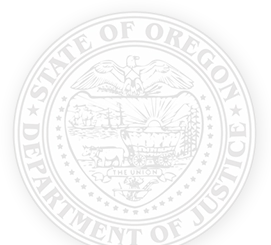Statement from Oregon Attorney General Ellen Rosenblum on the Federal Government’s decision today to withdraw the sale of the National Archives and Records Administration (NARA) building in Seattle.
In January, Oregon joined Washington and 29-federally recognized tribes and other groups in a lawsuit against the Office of Management and Budget (OMB) for illegally proceeding with the sale of the National Archives building located in Seattle that houses original records and materials critical to tribes and communities throughout the Pacific Northwest.
Statement from Attorney General Rosenblum:
“Today’s announcement by the Acting Administrator of the federal Office of Management and Budget supporting our position to NOT sell the Seattle archives building—and importantly—to make tribal consultation a genuine priority before deciding next steps, is absolutely the right decision. The information contained in these original records is critical to the people of the Pacific Northwest. The thought that the prior federal administration was willing to wipe from our collective memory the history of the Pacific Northwest and of our brother and sister tribes, was an absolute travesty. The history housed inside the building is priceless. Tribes, historians, Oregon’s university students and faculty, and countless others must be able to access these records in person. I thank the Biden Administration for its commitment to having an open process that consults all affected tribes before deciding if and where to relocate these sacred documents.”
In the January lawsuit, Oregon joined a broad coalition to stop the federal government from shipping irreplaceable, mostly un-digitized records more than a thousand miles away to archive centers in Kansas City, Missouri and Riverside, California. The coalition included Oregon; Washington; twenty-nine federally recognized tribes, Alaskan tribal entities, and tribal communities from Washington, Oregon, Idaho and Alaska; as well as nine community organizations, historical preservation societies and museums.
In the letter submitted today to the Public Buildings Reform Board, OMB Acting Director Shalanda Young wrote: “Any effort to sell the Federal Archives and Records Center in the future, through any available and appropriate authority, must comply with at least two substantial requirements. First, it must be preceded by meaningful and robust tribal consultation, consistent with the President’s January 26, 2021 Memorandum on Tribal Consultation. Second, it must proceed through the appropriate administrative process, based on a new factual record, and must comply with the attendant substantive and procedural safeguards of that process.” This necessary action comes as a huge victory to the multi-party coalition that has fought tirelessly to ensure the records and archives remain in their rightful place in Washington state.
Background
The National Archives building in Seattle hosts exclusive and un-digitized tribal and treaty records, Chinese Exclusion Act case files, records regarding the internment of Japanese Americans during World War II, and countless other records cataloging Pacific Northwest history. The records are invaluable resources for researchers, historians and individuals seeking information about their family history and heritage. For instance, the archives include tribal and treaty records relating to the 272 federally recognized tribes in Alaska, Washington, Oregon and Idaho. Tribal members use federal archive records to establish tribal membership, demonstrate and enforce tribal rights to fishing and other activities, trace their lineage and ancestry and access native school records. According NARA’s Seattle director, only “.001% of the facility’s 56,000 cubic feet of records are digitized and available online.” Further, Oregon’s research universities rely heavily on access to the records for the education of their students, faculty research and publications, and to preserve knowledge for the public good.
